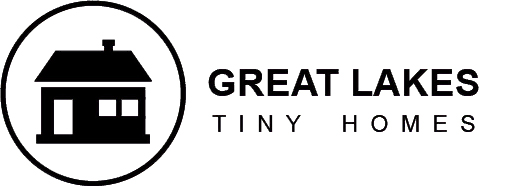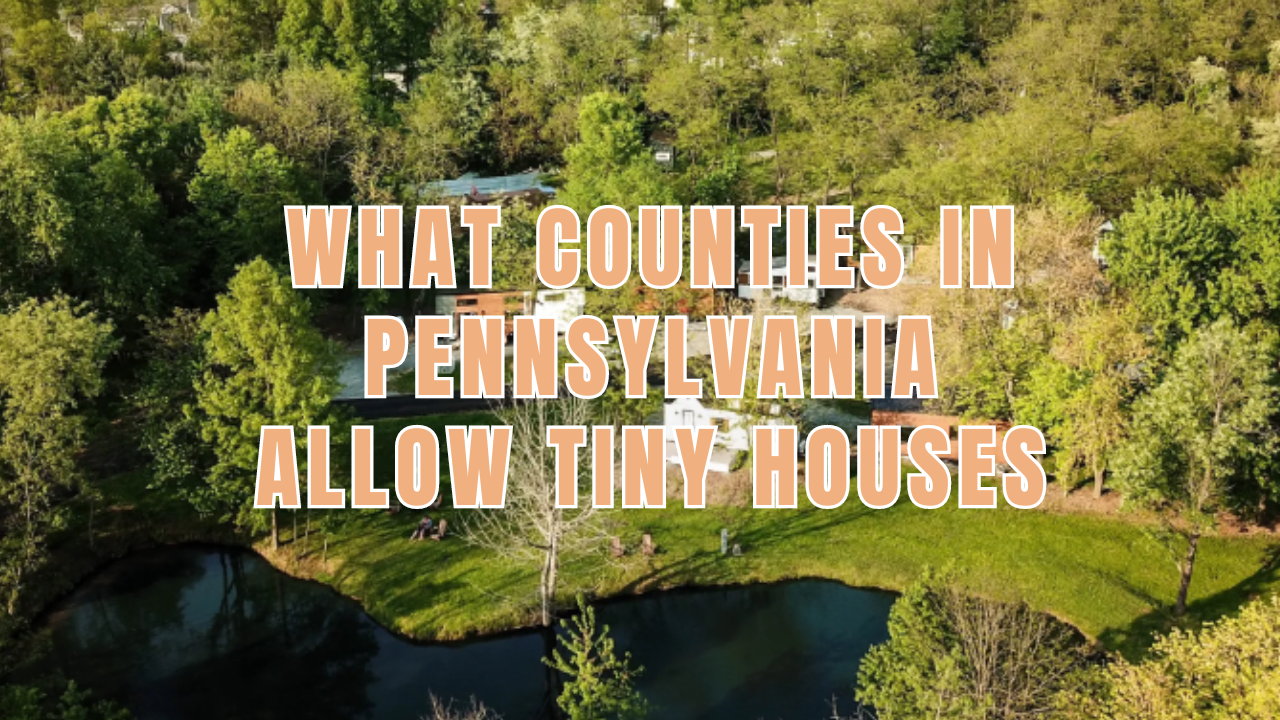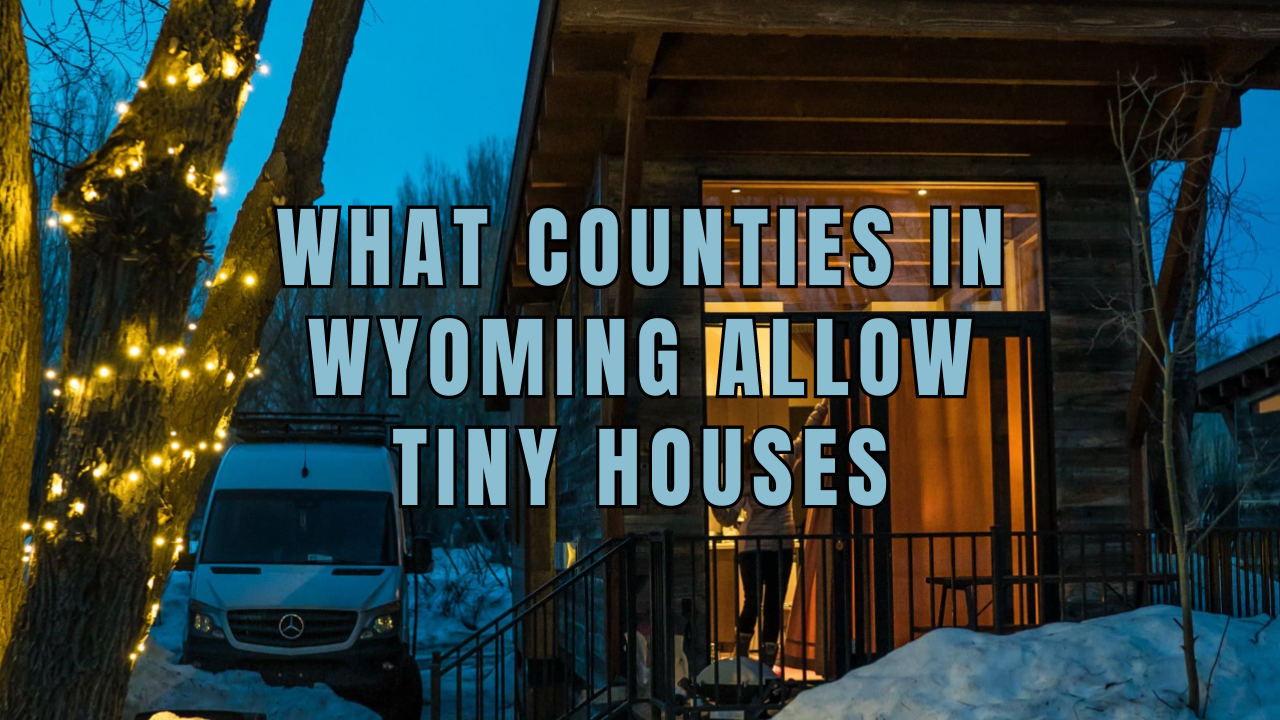The growth of tiny dwellings where busy cities meet rolling hills is a unique phenomenon taking root in Pennsylvania’s broad and diverse geography. Tiny homes are a captivating fusion of simplicity and pragmatism that capture the essence of living large on a tiny plot of land.
Nevertheless, not all counties in this large state welcome these tiny homes for sale. This post will explain how the approval of tiny houses depends on a complicated web of municipal ordinances, building rules, and zoning restrictions that differ from one county to the next.
Tiny House Prices in Pennsylvania
You are probably thinking about affordable solutions that match your tiny living aspirations and your financial situation now that you have set on your house project.
Wonderful news! We can support you toward your living project by providing alternatives to suit every living style and budget. Check out these PA tiny homes!
What Counties in Pennsylvania Allow Tiny Houses?
Unfortunately, there are no state-wide rules specifically about tiny homes in Pennsylvania. Different counties and localities can make changes to the state code to meet the demands of the general public. As a result, Pennsylvania’s tiny home laws and ordinances might differ from county to county. The following Pennsylvania counties provide special provisions for small houses:
Lancaster County
One of Pennsylvania’s most welcoming counties for tiny residences is Lancaster County. Because of Ridge Run Campground regulations, it established its tiny house neighborhood called Tiny Estates, which permits homes smaller than the state’s minimal square footage. The campground, which operates similarly to a mobile home park with people living permanently in their recreational vehicles, got permission from the county to allow tiny homes under the same regulations.
Bucks County
Tiny houses have few options in Bucks County. The Bucks County zoning rule makes that recreational vehicles can only serve as temporary residences for travel, camping, or other seasonal purposes. Permanent residences are not permitted. It makes it impossible for individuals to live in their mobile tiny homes full-time.
York County
Due to their minimum accessible area requirements of 700 square feet or more, York County municipalities do not permit tiny houses as permanent residences.
Additionally, the county only permits one permanent house per property. Therefore, you cannot utilize your tiny house as an accessory dwelling unit (ADU).
Tiny House Regulations And Rules In Pennsylvania
Following Pennsylvania’s 2018 Building Code is a way to ensure public health and safety while building a tiny house in the state.
When constructing a tiny house in Pennsylvania, get in touch with the local building authority since the most current information on tiny home rules and regulations in your area is from the building officials.
Permanent Structure Rules
In Pennsylvania, tiny houses on a permanent foundation must abide by the same tiny house laws and zoning ordinances as conventional residential buildings. It covers standards for energy efficiency, construction codes, and zoning.
The international residential code is applicable if you purchase a tiny house on a foundation and it qualifies as a regular residence. It establishes minimum requirements for creating livable areas, including building layout and the structure’s wall constructions, ceiling, HVAC system, and other structural elements.
The residential code of Pennsylvania establishes minimum standards for stability, building strength, natural light and ventilation, and other areas for public health and welfare protection.
- Habitable rooms require at least 70 square feet in floor space and a minimum of 7 feet in any horizontal dimension, except for the kitchens.
Temporary Structure Rules
Wheeled tiny homes are known as recreational vehicles (RVs) and are considered temporary buildings. They have to be safe and livable enough to fulfill RV regulations. These houses in Pennsylvania have a great deal of mobility, so their owners can move them if necessary.
Nevertheless, in contrast with tiny dwellings built on foundations, they must abide by distinct laws and regulations. For instance, HUD considers a mobile tiny house to be a manufactured home, meaning it has to adhere to the Manufactured Home Construction and Safety Standards but not the UCC.
Transitional Structure Rules
Structures known as transitional fall between the permanent and temporary classifications. Tiny dwellings, for example, work as short-term housing alternatives. Although the rules governing these constructions are unclear, they must probably abide by municipal building and zoning laws, much like permanent and temporary structures.
In Pennsylvania, Where Can I Build A Tiny House?
Take a certified tiny home builder to help you navigate the procedure, handle every document, and verify that your home satisfies building requirements.
Tiny home construction is a significant task, but it doesn’t need to be troubling. The following are typical locations for tiny homes.
- RV parks
- National Parks and campgrounds
- Tiny house communities
- Private properties
Tiny Home Communities in Pennsylvania
Tiny house communities are gaining popularity in Pennsylvania as people seek sustainable living options. These communities offer a close-knit and eco-friendly lifestyle, with residents enjoying shared amenities and a sense of community. In addition to promoting minimalist living, tiny house communities in Pennsylvania have natural settings while still being close to urban areas, making for a unique and desirable living experience.
Tiny Estates
For individuals who choose to reside in a tiny house long-term, there is a neighborhood called Tiny Estates in Elizabethtown, close to Lancaster, Pennsylvania. Since every resident owns a tiny house, rentals are not available.
Tiny Estates has lots available for you to park your own tiny home on wheels into the community and take part in the small experience. In addition, it has tiny houses for sale.
Game evenings, festivals, movie screenings, and holiday parties are just a few communal activities held there for everyone to enjoy.
Tiny House Builders Near Me
You can find the perfect home without searching for local builders thanks to Great Lakes Tiny Homes, which sells a selection of tiny home layouts with worldwide delivery.
In addition, RV Industry Association (RVIA) licensed manufacturer Great Lakes Tiny Homes is focused on upholding the strictest construction, safety, and zoning laws for tiny homes with the highest production standards.
Do I Need a Certified Builder?
Of course!
Though there are more risks and unanticipated outcomes, you could think about doing it yourself.
A small house built in compliance with laws and regulations is a sure thing when you work with an RVIA-certified contractor, such as Great Lakes Tiny Homes.
Additionally, it provides comfort since it certifies that the materials in your house are high-grade, long-lasting, and safe.
Dealing with a qualified builder also offers easy access to insurance and financing choices. Your tiny house is safe and livable if it complies with RVIA criteria.
FAQs
Can You Make a Tiny House in Pennsylvania Your Main Residence?
You can permanently reside in a tiny home in Pennsylvania.
On the other hand, pay attention to local zoning laws and guidelines. A good way to ensure that your tiny complies with all the rules and regulations involving inspection requirements is by contacting zoning and municipal officials.
Complete your research and collaborate with qualified builders to experience the benefits of quicker, more sustainable living in Pennsylvania.
In Pennsylvania, Do I Need to Pay Property Taxes For My Tiny House?
You are in charge of paying any necessary property taxes if your tiny home qualifies as real estate. You can find out if your small house counts like real estate in Pennsylvania simply by speaking with local officials.
To qualify as a dwelling and be liable for property taxes:
- Some counties could demand that the house be on a permanent foundation.
- Some counties can have extra requirements to fulfill.
What Is the Perfect Size for a Tiny House in Pennsylvania?
Tiny houses are built in some ways, with a floor area ranging from 80 to 400 square feet, and are frequently built on a mobile chassis.
However, according to the Pennsylvania construction code, a tiny house requires a minimum floor space of 70 square feet and horizontal dimensions of 7 feet. Still, the precise dimensions needed could change depending on the zoning regulations in that place.
Furthermore, particular sites could demand that the house fulfill specific architectural requirements, such as having a sufficient sewage system, other services, and a stable foundation.
Conclusion
Tiny home enthusiasts may face legal difficulties in some states and counties because not all have the same laws and regulations regarding tiny homes. Although tiny homes are usually okay in Pennsylvania, depending on whether they are tiny houses on wheels or foundations, they may follow municipal building rules, zoning restrictions, and vehicle laws.
Certain counties, such as York, are more stringent and prohibitive. And Lancaster is friendlier and more accommodating to tiny residences. Anybody planning to construct or live in a tiny house in Pennsylvania must understand the particular requirements and constraints of the area they have in mind.





